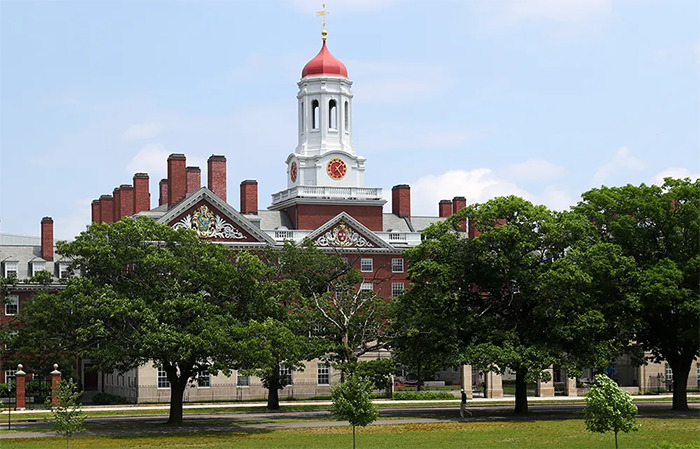
Mike Pence on Leadership and the Future of the Republican Party
Former US Vice President Mike Pence looks back on the events of January 6 2021, his final days in office with President Trump and his…
Thought Leader: Mike Pence

This article was written by WWSG exclusive thought leader, Niall Ferguson.
A visit to Jerusalem last week reminded me of the enduring value of sociology as a discipline, despite its lamentable politicisation in recent times. The founders of sociology – I think especially of Max Weber – would have been fascinated by Israeli society. In their politics, Israeli citizens are deeply divided: there are 12 parties represented in the current Knesset, of which seven belong to the governing coalition. One regularly encounters protestors outside government buildings, but no two groups seem to be shouting the same slogans. And yet Israelis are growing together more than they are coming apart – and not just because of the 7 October attacks. It is a commonplace of commentary that the ultra-Orthodox Haredi community has cut itself off from mainstream Israeli society, its men devoted to Talmudic study, its women to child-rearing, neither contributing to the economy nor serving in the military. As the Haredi represent more than 13 per cent of the population, this self-exclusion is a problem for a country at war. But things are changing. A retired general and a Haredi rabbi told me that by the end of the year there could be up to three Haredi units in the army, in addition to a growing number of self-defence units in the West Bank. Haredi firearm ownership and registration for paramilitary training have both soared.
Touring Mea Shearim, the Haredi neighbourhood, I was struck by the buzz of economic activity. Though ardent traditionalists about religious observance, one in every two ultra-Orthodox men I saw was on his mobile phone. The younger generation of Haredi women study and pursue careers. Given the size of Haredi families – the general and rabbi have more than 30 grandchildren each – these are consequential changes. You would not detect them in election results or opinion polls.
The death of Jacob, the 4th Baron Rothschild, is a melancholy turning point in the history of the Jewish people’s most illustrious family. Jacob personified the Rothschild tradition. He was a bold and visionary financier but, like his 19th-century forebears, he seemed to devote an equal amount of time and energy to philanthropy. Jacob combined high intelligence with acerbic humour, good taste and genuine kindness. He had reason to be wary when a young Scotsman turned up in his office 30 years ago, claiming to have been commissioned to write a history of the family by Sir Evelyn de Rothschild (who predeceased him in 2022). There was little love lost between the two cousins, so my initial reception was frosty. But Jacob took just a few minutes to decide against showing me the door. One of his many admirable traits was the encouragement he gave to impecunious writers, a family tradition that began with the friendship between James de Rothschild, the founder of the Parisian branch of the family bank, and the poet Heinrich Heine.
That anti-Semitism has a long history on the left as well as on the right was something I learned when researching the first part of The World’s Banker. It must have depressed Jacob in the last months of his life to see the old, ugly tropes resurface in such unlikely places as Harvard University and the war memorials of his beloved London. No less depressing are the misrepresentations of the campaign to eradicate Hamas from Gaza as ‘genocide’. Even if one accepts Hamas’s statistics, the ratio of civilian to military casualties is trending down from 2:1 to 1:1, exceptional numbers for urban warfare in which the enemy not only uses civilians as human shields but also hides its fighters in a vast network of tunnels. Comparable battles in the past, from Okinawa in 1945 to Mosul in 2016-17, saw much higher civilian casualties.
If, like too many other academics, I suffer the fate of ‘cancellation’ for expressing such an unfashionable view, there is a new safe haven at the University of Buckingham. Under the leadership of its vice-chancellor, James Tooley, Buckingham is striking a blow for academic freedom by putting the clever and courageous Eric Kaufmann in charge of a new Centre of Heterodox Social Science. Its launch is the latest initiative to counter the takeover of British higher education by the equity, diversity and inclusion movement, which in reality stands for a lack of due process, homogenisation of opinion and exclusion of dissident thinkers. Why any UK institution would want to follow Harvard down the path to ridicule is beyond my comprehension. Perhaps a sociologist will one day be able to explain this folly.
Mr. Ferguson is one of the world’s best historians, the Milbank Family Senior Fellow at the Hoover Institution at Stanford University, and a Bloomberg Opinion columnist.
Mike Pence on Leadership and the Future of the Republican Party
Former US Vice President Mike Pence looks back on the events of January 6 2021, his final days in office with President Trump and his…
Thought Leader: Mike Pence
Marc Short on U.S. Investment in Critical Minerals
Why do critical minerals matter now? Marc Short explains how U.S. investment in critical minerals fits into a broader strategy around economic security, manufacturing, and…
Thought Leader: Marc Short
Marc Short on AI Policy and the Government’s Role in Chip Technology Investment
On CNBC, Marc Short breaks down the role of AI policy and how government investment is shaping the future of chip technology. A former Chief…
Thought Leader: Marc Short

